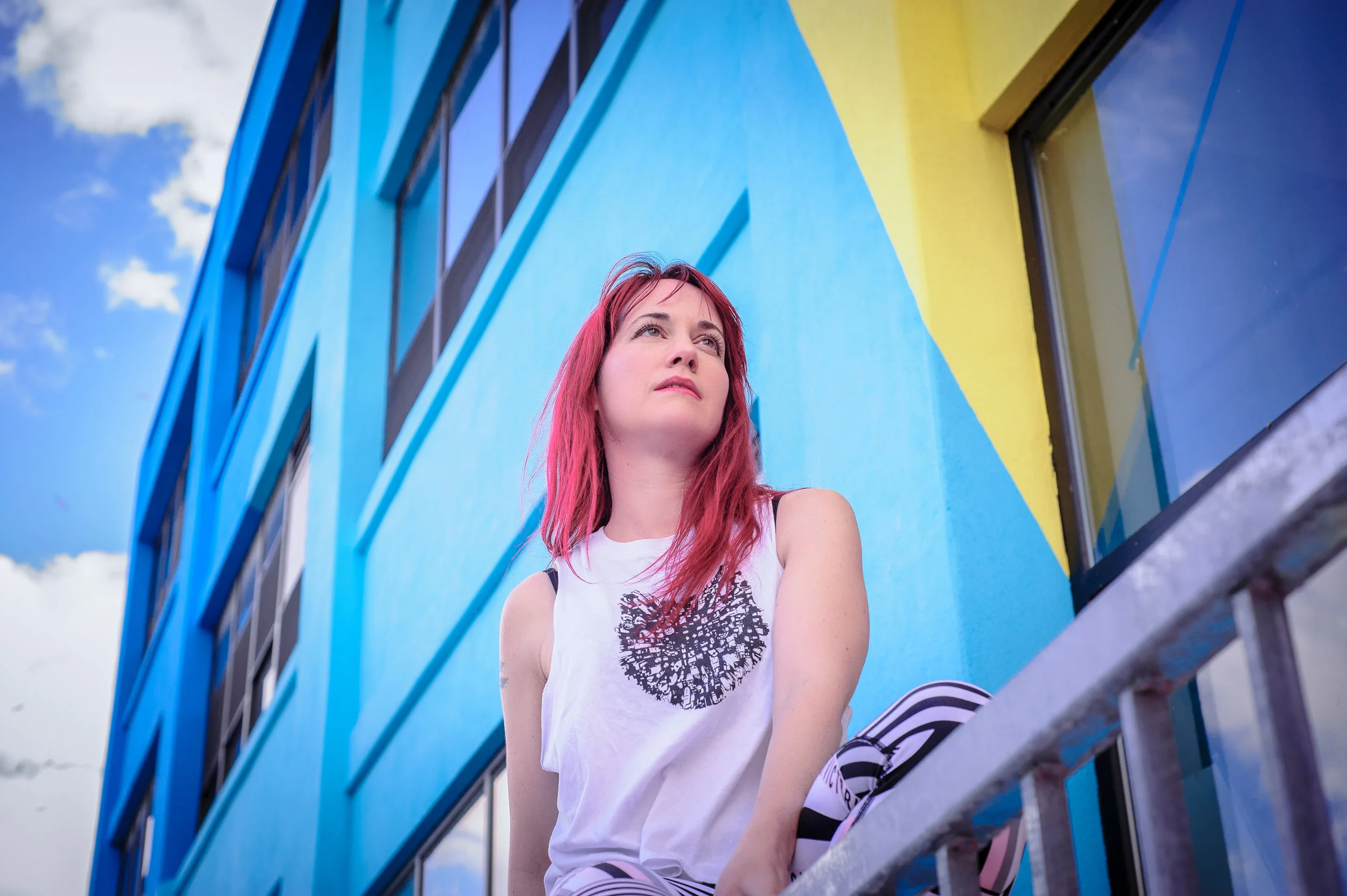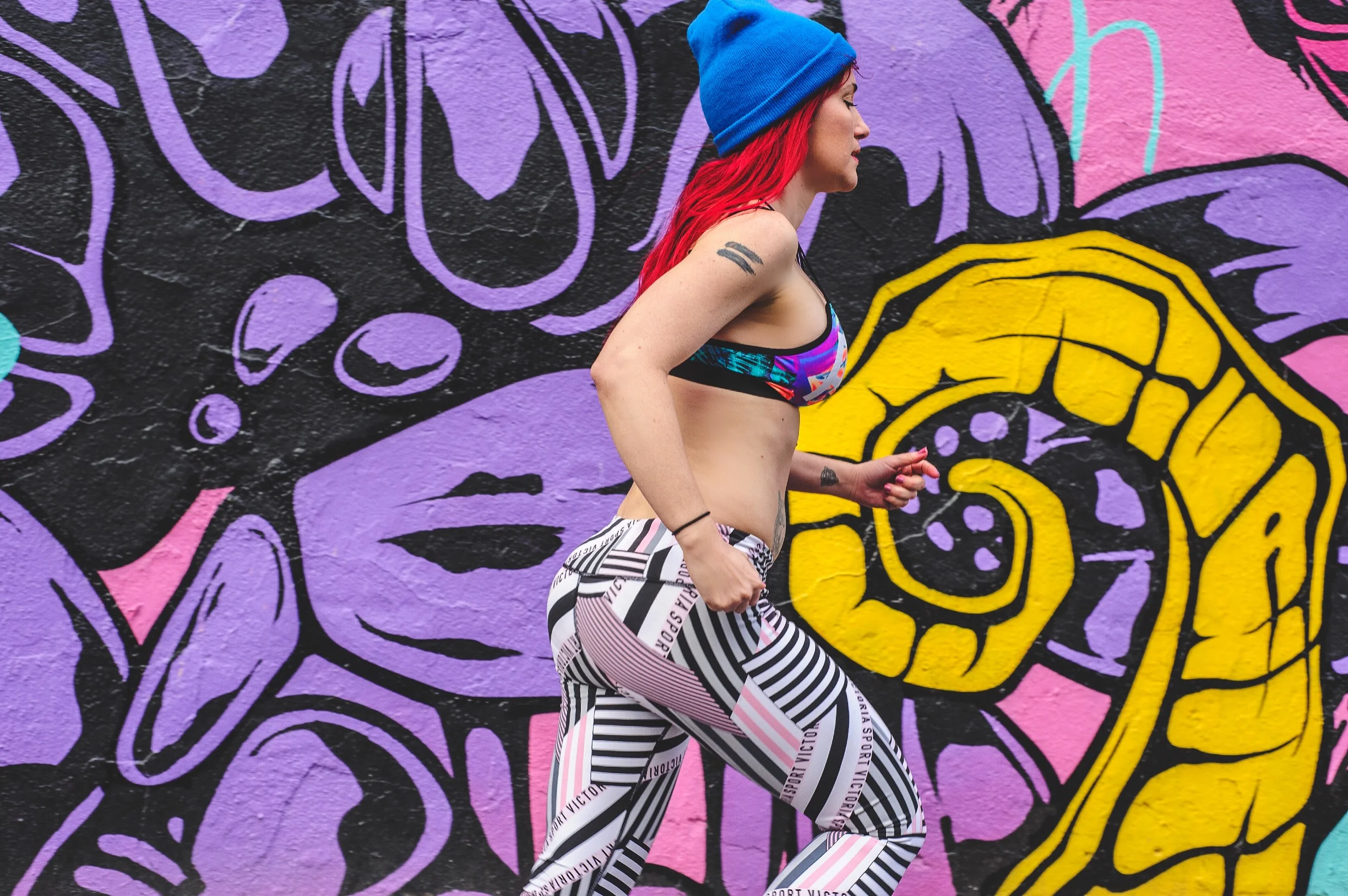Running Into Happiness? Tackling Depression One Step at a Time
Photos by Filles Garcons Photography.
Coming from a long family history of depression, I’d always considered myself lucky that it didn’t strike me. No, I’ve generally flown under the radar with a heavy sprinkling of anxiety, mixed with an impulsive streak, and occasional mild depression. And mild depression seems par for the course of modern living anyways, right? I only know a handful of truly happy people in NYC anyways. But I digress.
As I ran around my life thinking I was depression-free, suddenly it hit me like an express train at rush hour. It was summertime in NYC, usually when I am most active and happiest. Yet I started drowning in depression, incapacitated. I could barely get out of bed, even lost my motivation to run. And lost my appetite, which NEVER happens. This was serious.
“LGBTQ individuals are almost 3 times more likely than others to experience a mental health condition such as major depression or generalized anxiety disorder. This fear of coming out and being discriminated against for sexual orientation can lead to depression, posttraumatic stress disorder, thoughts of suicide and substance abuse.”
I needed answers. I knew some situational things related to my business and finances had triggered feeling down, but it was more than that. I’d had many challenges before and still got up everyday to face them. Why was I so paralyzed? I was also grappling with other issues, as it was my first time living with a girlfriend and dealing with people’s discrimination. As a bisexual person who many people assume is straight, I rarely dealt with these issues so in-depth. But my parents and close friends are supportive. Was other people’s ignorance affecting me that much?
As is usual when I am searching for answers, I researched. I read The Upward Spiral: Using Neuroscience to Reverse the Course of Depression, One Small Change at a Time, which explores the biological side of depression and how we can rewire our brains to feel better. I was fascinated by the notion in the book that taking action when you are depressed actually helps rewire the neurons that are making you feel depressed.
So I forced myself to run, as exercise was one (of several) ways listed that can help. And I knew from experience running always helped me feel calmer and happier. It was just getting going that was so difficult. I felt like I was existing in a vortex that kept me literally down, in bed, feeling trapped like a fly stuck on sticky flypaper.
Yet I ran. Very slowly, and less miles than my old self, but still something. And I felt that crippling veil of depression lifting, slowly, steadily, with each step. I’d return from my run and feel stronger, a little more capable of handling life’s challenges.
I also took some pilates classes in my neighborhood. I felt myself growing physically stronger, and mentally as well. I started to set fitness goals again.
I talked to those close to me. I called my parents in St. Louis daily, sometimes multiple times. In NYC, my girlfriend and best friend were both very supportive. I am grateful for a loving and patient inner circle of people who helped me through that dismal time. Through their help and my vulnerability in opening up, we became closer. I came to realize who I could truly count on when I felt like I had nothing to offer.
The book helped me a lot with taking small actions to help myself as well. Doing simple things like going to the grocery store - normally not even a second thought - had become so difficult with the depression that I preferred to avoid it and eat lackluster, simple meals in bed. But making myself go to the store one day, to a meeting the next, and lunch with a friend another day, all started to add up. I made myself do at least one thing a day in addition to running. Working from home can make it easy to isolate yourself, so I had to make the effort to reconnect with the world.
And I tried therapy. It took a while to find a therapist I clicked with but eventually I did, and she helped me so much with dealing with my emotions. I am happy to say the depression didn't get as bad as it could have, and I emerged on the other side eager to jump back into the life I’ve worked hard to create.
I know many people struggle with depression, and I hope this story can offer some hope and insight. If you are grappling with depression and searching for answers the way I was, it is worth checking out The Upward Spiral. And find a counselor. Sites like BetterHelp can connect you with a therapist in your city.
And remember, no matter how difficult it feels, keep running. Your mind will thank you for it.
If you have thoughts of suicide or feel like there is no hope, contact the National Suicide Prevention Helpline.
LGBTQ Resource List: GLAAD
Marnie Kunz is a writer, entrepreneur, and running coach based in Brooklyn, NY. For more articles by Marnie on mental health and NYC life, check out her stories on Medium.
If you’ve battled depression or other mental health issues, what has helped you prevail? How has running played into your treatment? Comment below or email me at marnie@runstreet.com.
Disclaimer: This blog may contain affiliate links. If you sign up for anything linked in the post or from an ad on the page, you won’t pay a penny more but you will be helping us keep the lights on:).


